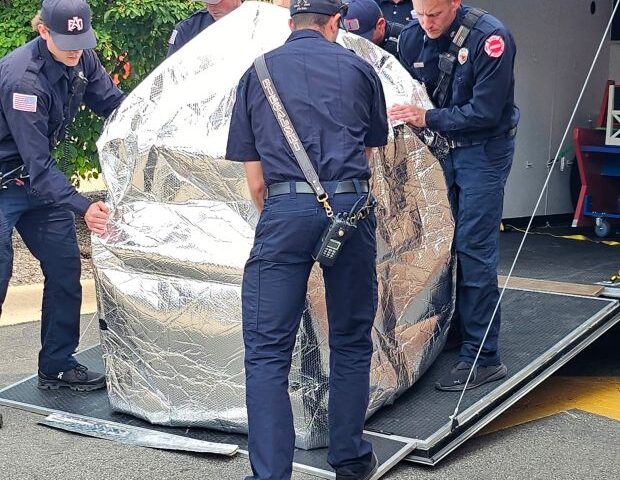East Dundee has a high concentration of video gaming machines per capita, with one terminal for every 25 residents, a saturation that has the village board discussing the need for new regulations.
Village trustees established a one-year moratorium on approving more machines in November 2023 after seeing an increase in requests for gaming licenses and terminals. There are 126 in bars, restaurants and gas stations that offer video gaming, with the largest concentration being downtown.
With a population of just 3,160, East Dundee has far more gaming terminals per capita than neighboring communities. For example, West Dundee — with a little more than double East Dundee’s population — has one terminal for every 263 residents, officials said.
The topic was discussed at this week’s East Dundee Village Board meeting in advance of the moratorium expiring.
While there are some regulations — video machine noise is regulated, the number of terminals dictated by square footage and a limit of one machine for every 750 square feet of public space — they have done nothing to quell the demand for gaming licenses, officials said.
Board members acknowledged that gaming could end up overshadowing the things they want to accomplish, like building on its dining destination reputation.
Among the things that might help the curb future growth, trustees suggested that ordinance provisions could include things like a six-month waiting period between a license request and issuance; nontransferable gaming licenses so new business owners would not automatically inherit terminals as part of the purchase; restrict terminals to areas that are not at the front of a business; increase license fees; and reevaluate of the square footage requirement.
Village President Jeff Lynan said the initial moratorium was spurred by some “oddball requests,” such as allowing gaming machines inside liquor stores, and curbing the escalating demand, which included proposals to create gambling parlors.
As far as he’s concerned, he’d like to see East Dundee limit terminals to just bars and restaurants, Lynam said.
“Can we legally do that?” said Trustee Scott Kunze, who cited truck stops as an example of the type of business that has no restrictions under state law.
Trustee Sara Brittin said they could create a policy that limits the kinds of businesses allowed to have video gaming licenses. They could also cap the number of terminals a business is allowed to have or roll back the number of licenses the village issues, she said.
“I don’t think we should stop letting machines in town, and I’m not saying take any out,” Brittin said. “But as a board, we can have a discussion of what we have now, where we want to go, what makes more sense and how we go about getting there. … What do we want gaming to look like in our community?”
Trustees voices varying opinions on extending the moratorium or creating new regulations.
Trustee Tricia Saviano said she believed the data about video gaming saturation was skewed because the village is about 30% residential and 70% commercial.
“We have way more restaurants and bars than a lot of places do,” Saviano said. “Some of these things look shocking, but when you look at all the variables, it’s not as shocking.”
While she supports the square-footage requirement, she said, “I’m not a big government oversight person. You want to have some games, have some games.”
Trustee Andy Sauder, however, said if the village wants to expand its reputation as “a culinary town,” the presence of too many gaming terminals could make it known as “a gambling town” instead.
“There’s a certain point when we become more of a gambling town and the quality of the food and experience isn’t as valuable,” Sauder said.
He did an informal poll of residents, asking how they felt about video gaming, he said. The consensus indicated there was support for fewer machines, prompting him to think there needs to be more of a balance so video gaming doesn’t become a business’ focus, he said.
Trustee Kathleen Mahony said restaurants like Mockingbird Bar and Grill and Tequila Val’s opened without video gaming and have been successful.
“I would honestly prefer to calm down the number of terminals in the downtown area,” she said. “I’m fine with it at truck stops and gas stations, but if another restaurant has to come in and say they have to have gaming terminals in order to succeed, I think they need to rethink their business model.”
Gloria Casas is a freelance reporter for The Courier-News.



